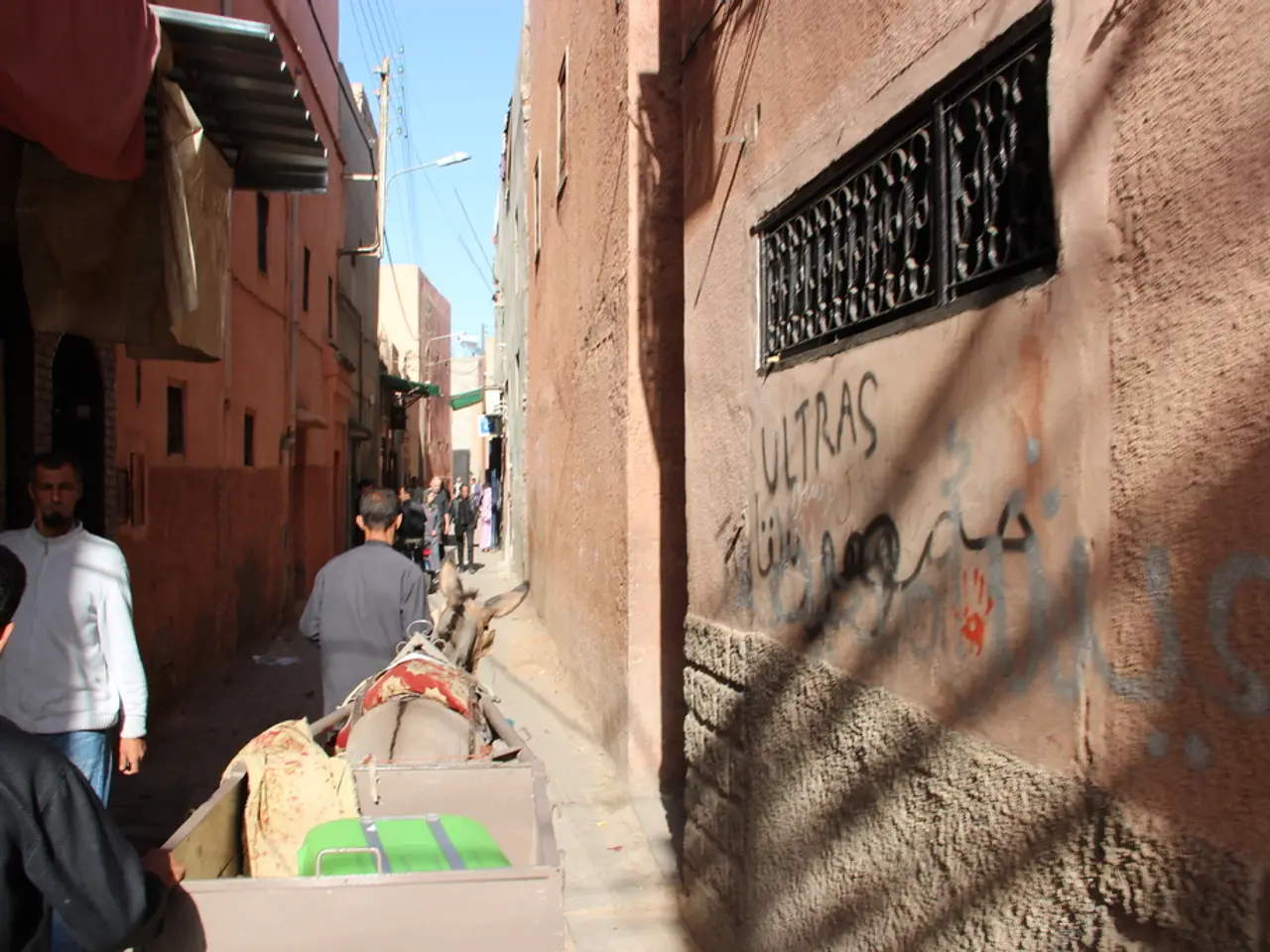"Albanese, Australian leader, accuses Netanyahu of being in a state of denial regarding the hardships endured by residents in Gaza"
Australia has joined a growing list of countries recognizing a Palestinian state, a move that has sparked debate within the country and raised concerns about its relationship with the United States.
Prime Minister Anthony Albanese announced Australia's decision to recognize a Palestinian state at the United Nations General Assembly next month. The decision comes amidst a worsening humanitarian crisis in Gaza, where tens of thousands of demonstrators have taken to the streets calling for aid deliveries.
Albanese criticized Israeli Prime Minister Benjamin Netanyahu for his "denial" about the humanitarian situation in Gaza. In a phone call with Netanyahu on Thursday, Albanese reiterated his concern about the consequences for innocent people.
Opposition leader Sussan Ley described the decision as "disrespectful" of key ally the United States, which opposes Palestinian statehood. Ley stated that Australia would never have taken this step because recognition, the two-state solution, comes at the end of the peace process, not before.
The decision to recognize a Palestinian state is conditional on commitments from the Palestinian Authority, specifically excluding Islamist militant group Hamas. The incumbent center-left Labor Party, which won an increased majority at a general election in May, has previously been wary of dividing public opinion in Australia, which has significant Jewish and Muslim minorities.
The Netanyahu government's reluctance to listen to its allies contributed to Australia's decision to recognize a Palestinian state. Neighboring New Zealand is still considering whether to recognize a Palestinian state, a decision that drew sharp criticism from former prime minister Helen Clark. Clark said in an interview with state broadcaster RNZ that this is not the New Zealand she's known.
Jessica Genauer, a senior lecturer in international relations at Flinders University, stated that the decision to recognize a Palestinian state by Australia is driven by a shift in popular sentiment in Australia, wanting to see an end to the humanitarian crisis in Gaza.
The reporting was done by Alasdair Pal in Sydney and the editing was done by Stephen Coates.
The international response to the humanitarian crisis in Gaza has focused on calls for immediate ceasefires, urgent humanitarian assistance, and protection of civilians amid escalating violence. Key global actors, including the EU and various foreign ministers, strongly condemned military escalations that worsened the situation, emphasizing the need for unimpeded aid access and adherence to international humanitarian law.
Humanitarian organizations like the World Health Organization (WHO), UNICEF, and UNRWA have been actively supporting Gaza’s health sector, although efforts have been hampered by intense bombardments, mass displacement, and lack of humanitarian pauses. Direct aid delivery, including potable water and medical care to displaced Palestinians, has continued on the ground despite obstacles.
In summary, the core international response combined diplomatic calls for ceasefire and conflict resolution based on a negotiated two-state solution, urgent appeals to protect civilians and ensure humanitarian principles guiding aid organizations, operational humanitarian support primarily by UN agencies and NGOs focused on health, water, nutrition, and medical evacuations, and a continued emphasis on the cessation of hostilities to allow effective delivery of aid and the protection of health facilities and personnel. This response was complex, influenced by worsening security conditions and restrictions on aid access, necessitating persistent international pressure and coordination to mitigate the catastrophic humanitarian impact in Gaza.
This recognition comes after similar announcements from France, Britain, and Canada.
- The decision to recognize a Palestinian state by Australia, as announced by Prime Minister Anthony Albanese, is driven by a shift in public sentiment, particularly a desire to address the ongoing humanitarian crisis in Gaza.
- Opposition leader Sussan Ley criticized the move, claiming it disregards the longstanding alliance with the United States, which opposes Palestinian statehood. Ley argues that the recognition should only occur at the end of the peace process, not before.
- The Netanyahu government's resistance to engaging with its allies has contributed to Australia's decision to recognize a Palestinian state, following similar moves by France, Britain, and Canada.
- The international response to the humanitarian crisis in Gaza has been multifaceted, involving diplomatic calls for ceasefire and conflict resolution, urgent appeals for aid access, adherence to international humanitarian law, operational humanitarian support, and a continuous emphasis on the cessation of hostilities to allow for effective delivery of aid.








